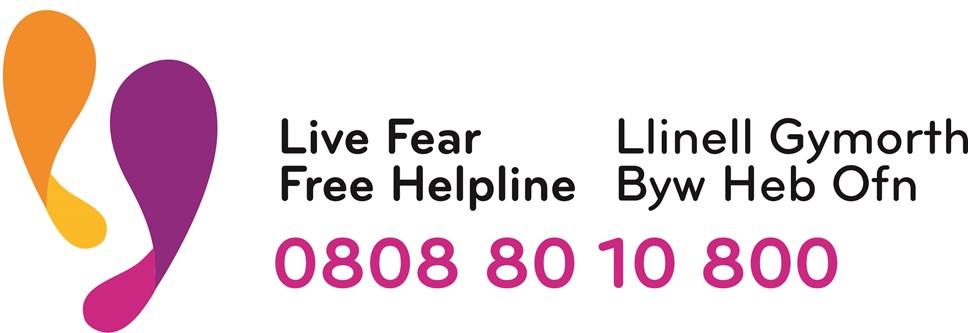
Domestic abuse services in Wales are ready to help
Gwasanaethau cam-drin domestig yng Nghymru yn barod i helpu
The Deputy Minister and Chief Whip, Jane Hutt, today emphasised that specialist services in Wales are open and available to help those facing increased risk from domestic violence and abuse during coronavirus.
“During times of crisis, incidents of domestic abuse increase. This has been made worse by social distancing, self-isolation and heightened tensions, and concerns about health, job stability and money can lead to violent outbursts. Other countries affected by the pandemic are reporting significant rises in domestic abuse.
“The Covid-19 crisis is an anxious time for all of us, but doubly so for those who are trapped in their homes with an abuser. For these people, home is not a place of safety, but a place of fear, abuse and violence.
“I’m concerned that it is difficult for victims and survivors to make calls to the Live Fear Free helpline when an abuser is within earshot, so we are promoting ‘silent’ methods for seeking help. Text, web-chat and email are all available if victims aren’t able to speak.
“In addition, the police will also respond urgently to ‘silent’ 999 calls – simply press 55 when the operator answers.
“If you’re in danger in your home, you will not be fined or arrested for leaving the house. Domestic abuse services in Wales are open and available, and can help you leave safely.
“I welcome the UK Government’s announcement of a campaign to boost online services and helplines for domestic abuse victims and survivors in England.
“Here in Wales, our services are continuing to support anyone who is at risk of domestic abuse to get the protection they need. The Live Fear Free helpline is available 24/7 to provide advice and support that is specific to Wales.
“Last week, I announced £1.2 million to fund community accommodation for victims of domestic abuse, as well as an additional £200,000 for furnishings, computer equipment and white goods, while our annual VAWDASV capital fund will prioritise projects to support the current crisis.
“Welsh Government has also recently announced funding and new powers for local authorities to protect public health and meet the housing needs of vulnerable people, including those with no recourse to public funds.
“We want people to look out for each other, and to notice the signs that someone needs help.
We will be re-running our ‘Don’t be a Bystander’ campaign, and want to work with the police, pharmacies and supermarkets to share our “Don’t be a Bystander” message together with information about access to help and support.
“We have also opened up our VAWDASV e-learning module for all, to help people spot the signs of domestic abuse, and to know how to get help for friends or neighbours.
“It is available to everyone, in Welsh and English, and can be accessed at https://learning2.wales.nhs.uk/login/index.php by logging in as a guest.
“These are exceptional times, and the risk cannot be overestimated. I want to reassure the people of Wales that we are ready and available day and night to support those who are at risk of domestic violence and abuse.
“Please don’t suffer in silence. You are not alone.”
Notes to editors
The Live Fear Free Helpline provides support for victims and survivors irrespective of gender; service providers and ‘concerned others:
https://gov.wales/live-fear-free Tel: 0808 8010 800 Text 078600 77333
Support is available through webchat, text & phone via @LiveFearFree
The Safer Wales Dyn project provides support to Heterosexual, Gay, Bisexual and Trans men who are experiencing Domestic abuse from a partner.
http://www.dynwales.org/contact-dyn-project/?contentID=577 Tel: 0808 801 0321
The Bawso helpline offers support to BAME victims and survivors affected by domestic abuse and all forms of violence against women.
https://bawso.org.uk/contact-us/ Tel: 08007318147
Silent 999: If you can’t talk in safety, but you need help immediately, police forces across Wales will respond to a silent 999 call – dial 999, and when the operator answers, dial 55 to indicate that you can’t talk, but need help.
